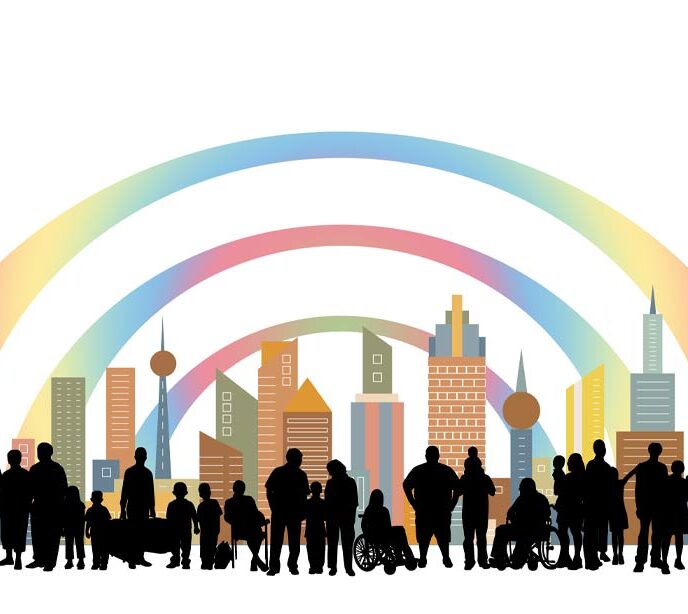What’s Next After ABA Therapy?
There are a number of reasons why an autistic child might stop ABA therapy, and one is that they have reached their goals. In this article, we take a look at what parents can expect going forward.

What Are the Next Steps After ABA Therapy?
As a parent, you only want what’s best for your child. And, if you’re raising a child with autism, reaching ABA therapy graduation is a significant milestone — not just for your child, but for you as a parent or caregiver. After months or years of structure, support, and steady progress through a program like Lighthouse Fusion ABA therapy, the idea of moving forward can feel both exciting and uncertain.
Once your child has reached their specified ABA therapy goals, it’s time for them to take the next steps in their journey. But it’s important to understand that you and your child won’t be doing this alone. Graduation doesn’t mean the journey ends. Instead, it marks the beginning of a new phase, one where your child continues to grow, develop, and apply the skills they’ve learned in therapy to everyday life.
This blog will provide more insight into ABA goals, the importance of monitoring and tracking achievements, knowing when to stop ABA therapy, and the potential next steps after graduation.
What are the goals of ABA?
Every ABA program begins with an in-depth assessment by a Board Certified Behavior Analyst (BCBA). From here, the program is tailored to suit every child’s individual abilities, preferences, interests, and requirements. Family circumstances and preferences are also taken into account.
ABA therapy goals for autism will also depend on the skill level and age of the child. In general, the following skill areas will be targeted:
- Language and communication
- Social abilities
- Self-care
- Enjoyment and relaxation
- Movement
- Learning and school readiness skills
A goal and treatment program will be designed to develop each of these skills in short, clear, and concise steps. Short-term goals will be set for every session, while long-term goals are the main aim of what the therapist and client are working toward.
When to stop ABA therapy
How long does ABA therapy last[1] , and how do you know when to stop? These are two of the most common questions we receive from clients who are just starting out with ABA therapy. And we always tell them the same thing. Attending ABA therapy isn’t necessarily a lifelong commitment. It is there to unlock each child’s potential through evidence-based therapeutic approaches in a nurturing and supportive environment. The goal is to prepare your child for the world around them and teach them how to cope so that, one day, they can take a step back and take on their day-to-day lives with greater independence. How long this process takes, however, differs from child to child.
While many children benefit from intensive early intervention[2] , often receiving 30–40 hours per week in their early years, others may need less intensive intervention, opting for services that range from 5–10 hours per week to focus on specific skills.
Over time, therapy may transition to less frequent sessions or focus on specific skill-building as the child gains independence. It is not uncommon for children to be in services for 2–3 years and then fade out over time.
Some individuals continue with ABA-based strategies into adulthood, particularly for social skills, communication, and adaptive behaviors. However, the goal is usually to equip individuals with lasting skills so they can function independently without ongoing therapy.
During treatment, a therapist will collect data during each session and track the child’s progress. They will have regular meetings with parents and might suggest discontinuing ABA therapy in the following cases:
- The child has met the goals set out for them.
- They are learning new skills spontaneously from their environment without the need for direct instruction.
- Parents are able to teach strategies and implement behavior plans at home without the need for a therapist.
A therapist could also recommend that a child stop ABA therapy if they are not progressing over time and other treatments might be warranted, or if there is disagreement with the parents on the treatment plan.
Recognizing progress and achievements
Recognizing progress and achievements is critical when determining whether a child should stop ABA therapy. Therapists will assess if key milestones — including speech and language goals for autism or self-care routines — are being met consistently and independently. This is crucial as children hit new milestones since therapists must reassess and re-evaluate new skill sets and identify areas where improvement needs to be made.
If there has been significant improvement and development in targeted behaviors and skills, and the child demonstrates consistent and independent functioning across a number of scenarios, then it could indicate that the child is ready to transition to the next step.
Regular assessments and tracking achievements of ABA therapy aren’t just about evaluating skill acquisition but also about determining whether this progress can be maintained over time. To reach a point where continued therapy is no longer necessary, the child must demonstrate that their progress won’t stop when therapy stops and that their newly acquired skills will be carried forward with them.
Progress, overall development, functional independence, and the ability to retain skills and spontaneously learn new ones are all considered when deciding whether a child should stop ABA therapy.
Potential next steps
It’s critical for professional teams and parents to continually assess whether the goals and strategies of their current ABA therapy align with the child’s evolving needs. In some cases, other support services or interventions may be more appropriate.
As a child with autism develops and reaches a certain level of skills and achievement in ABA therapy, it could be time to reduce the intensity and frequency of the therapy. In this case, your child might transition to less intensive support and gradually decrease the number of therapy sessions that they attend. It could also simply mean moving from one-on-one therapy to a group support system or maintaining skills across various natural environments.
As your child nears graduation, your clinical team will continue to monitor how well therapy goals align with their evolving needs. New challenges may emerge, and some of the ABA goals for autismmay be replaced with new objectives related to school readiness, self-advocacy, or social interaction.
A major goal for many children with autism is transitioning from ABA therapy back into school[1] . This may include classroom preparation, peer interaction practice, and refiningbehavior goals for children with autism that are appropriate for group settings. In order to prepare for this transition, our therapists will try to mirror an individual’s school day as closely as possible. Communication with teachers and parents allows them to create scenarios like circle time, independent work time, snack time, and more.
They will work on teaching your child classroom etiquette, such as raising their hand and waiting for their teacher to call on them. Working on social skills, such as saying “my turn to talk,” when to let other children talk, or learning how to express their feelings effectively, is essential when going into what can be an overwhelming classroom environment.
It’s important to continue providing children with the tools they need for the classroom even after they have arrived. Feedback from parents and teachers can help us to recognize where your child is thriving and where they need more support.
Ultimately, we want to be able to bridge the transition between ABA therapy and whatever path comes next for your child with as little disruption as possible.
Take the Next Steps with Lighthouse Autism Center
Our clients come before anything else, and we are always thrilled when they meet their goals and can move on to the next step from ABA therapy. However, we are also invested in ensuring that the journey ahead is as smooth as possible by equipping children with autism and their parents and caregivers with the right tools and autism resources.
Armed with the knowledge and strategies from LAC, caregivers and parents can create a nurturing, supportive environment for autistic children that fosters growth and continues to empower them once they have graduated from ABA therapy.
Together, we can unlock your child’s potential
Related News

06/11/2025
Overcoming Stereotypes
Autism stereotypes are common and can have significant social consequences for autistic children. Misconceptions hinder the acceptance and inclusion of autistic children. Challenging these stereotypes is vital for creating a more understanding and supportive society. Challenging Common Autism Stereotypes When people hear the word “autism,” they often imagine a narrow set of images, like the […]

06/11/2025
What’s Next After ABA Therapy?
There are a number of reasons why an autistic child might stop ABA therapy, and one is that they have reached their goals. In this article, we take a look at what parents can expect going forward. What Are the Next Steps After ABA Therapy? As a parent, you only want what’s best for your […]

06/11/2025
Do Babies with Autism Smile?
We take a look at the importance of early intervention, some of the milestones for parents to look out for, and the more common signs of autism in babies. Do Babies with Autism Smile? Watching your baby grow is an exciting time, certainly one of life’s quiet wonders. From those first sleepy stretches to the […]


